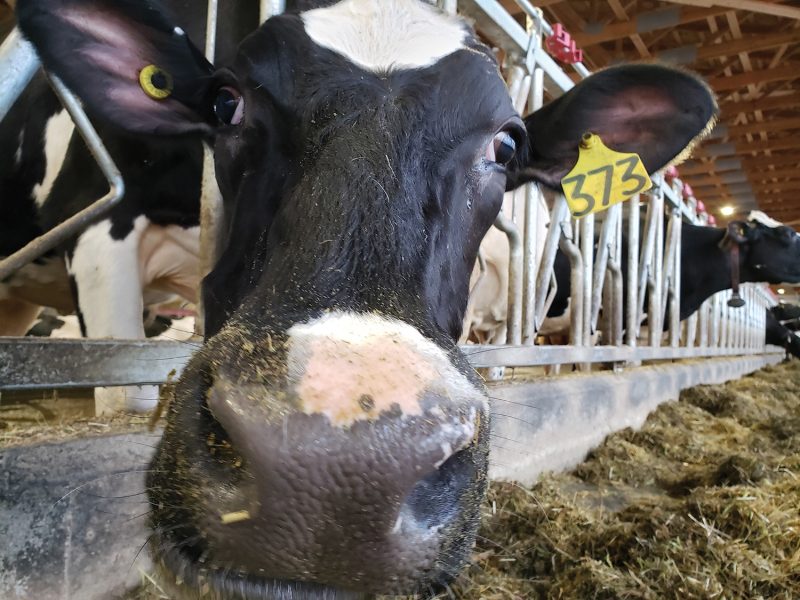ABBOTSFORD – Dairy processing capacity is on the rise in Western Canada, and BC dairy producers have received an extra 3% quota to keep pace with demand.
The increase approved February 1 has leveled out quota issuance to each of the four provinces in the Western Milk Pool at approximately 101%.
“In previous years, we haven’t had the processing, so we haven’t been able to allocate all of our quota,” Jeremy Wiebe, executive treasurer with the BC Milk Marketing Board, told producers attending their spring meeting online on April 12. “But we have got some processing online in the past year so we have been able to allocate to 100% now, and in some provinces right up to 101%.”
BC is one of two provinces at 101%, thanks in part to the expansion of milk processing capacity in the province.
“We’ve been hearing really positive feedback from the processors on what’s taken place in the Western Milk Pool,” says Wiebe. “I’ve been on the milk board for 10 years, and I can honestly say I’ve never been as positive about processor expansion in the West as I am right now.”
Saputo’s consolidation of its BC operations in a $240 million state-of-the art milk plant in Port Coquitlam three years ago as well as the plans Surrey’s Punjab Milk Foods Inc. announced last fall to consolidate its four locations in a 296,000-square-foot plant producing a variety of South Asian dairy products are both signs of the confidence.
And there’s more to come, with Vitalus Nutrition Inc. building a plant to process 500 million litres in Abbotsford. Colloquially known as the P500 project and backed with $25 million in provincial funding, it’s set to be operational by fall 2026.
“It’s a big deal for the West. It’s going to result in a lot of quota growth for farmers,” Wiebe says.
Production will need to increase 17% across the Western Milk Pool, starting with a 5% increase in the 12 months prior to completion followed by 4.5% in the first year of operation.
“We’re going to have to have a lot of increased production to supply this plant,” says Wiebe. “It’s complicated, and it probably won’t all be issued as quota. We might have to change a little bit of the ratio on how we pay for our milk to get more litres of milk and some more protein for the plant.”
Written agreements are falling into place, but Wiebe cautions that delays are possible.
The plant has faced significant hurdles to date, with permission required from the Agricultural Land Commission as well as consultation with local Indigenous groups before construction began.
“There have been a lot of delays already, and they were unforeseen, and there may be more unforeseen delays,” Wiebe says.
Greater production volume means greater revenue for producers, who continue to grapple with the high cost of producing those volumes.
BC Milk vice-chair Tom Hoogendoorn said a 1.77% increase to the farmgate price of milk that kicked in May 1 is good news, and follows on a 22% increase over the past five years.
The average WMP price has been 99 cents per litre for the last several months and is currently around $22 per kg of butterfat.
“Farmers receive a pretty good price right now with an increase over the last two years, quite a big increase, and another expected May 1,” he told the meeting. “I know everybody doesn’t like the price; they want more, but this is what it is, and it’s quite strong, actually.”
Despite “very concerning” declines in fluid milk consumption overall, specialty products like ultrafiltered and lactose-free milk, as well as yogurt have seen strong growth.
“The demand is quite strong; the growth over time is very strong,” Hoogendoorn said. “A real growth market right now is the ultrafiltered milk, like Fairlife. Extremely high growth, and lactose-free is up 10% year over year.”


 BCFGA holds pre-election rally
BCFGA holds pre-election rally